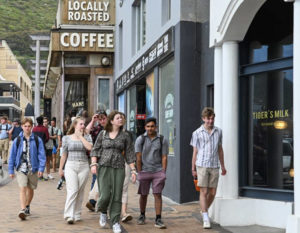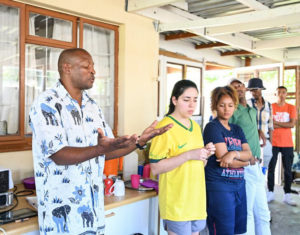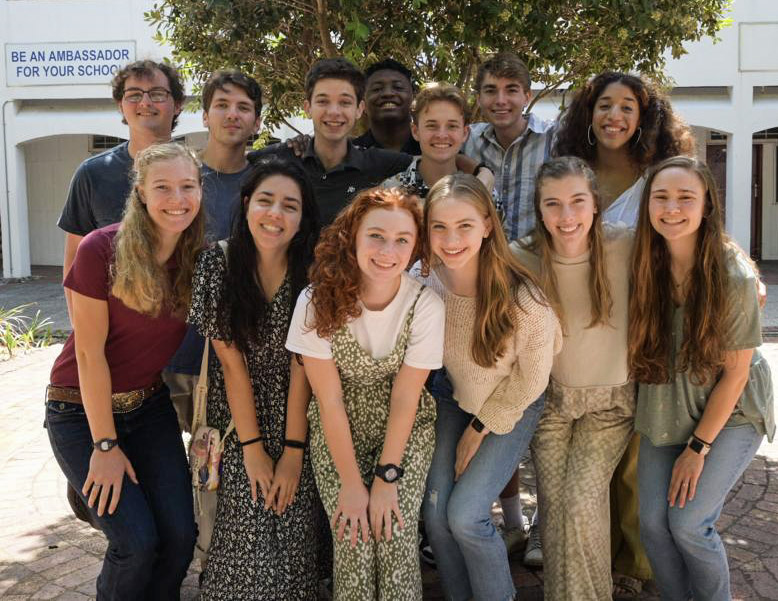Since landing in Cape Town, South Africa, Team Leeu (4) has been very busy with cultural immersion experiences organized by Sport for Christ Action South Africa (SCAS). These experiences have taught us a lot about the history and cultures here in South Africa, particularly the harsh realities and aftermath of apartheid. Apartheid was a period of history where racial segregation was prevalent and government-sanctioned in South Africa. As a result, terms such as “white,” “black,” and “colored” are commonly used. I (Elizabeth) will use them here to accurately represent our experience.
This week, we visited three different communities: Eerste River (a colored community), Stellenbosch (a primarily white university town), and Khayelitsha (a black township). We learned valuable lessons and hard truths in each place, but a common theme was the notion of a “wounded healer.” 
In Eerste River, we spoke with Maso, a young Christian heavily involved with SCAS under the leadership of Meshach. Maso was raised in post-apartheid South Africa, which still exhibits racial and class divides. As a young man in Eerste River, he has experienced familial breakdown and other hardships. He remembers looking for love and finding it “in all the wrong places,” but finally placing his hope and trust in Jesus. I have never met a young man so on fire for the Lord and filled with such joy and passion about the gospel. Maso was the first to mention being a “wounded healer,” as some of the experiences he went through allowed him to have more of a witness and be a better follower of Christ. Some of the wounds that he still deals with have made him able to help friends through similar situations. Maso says he is actually thankful that apartheid occurred because his experiences have made him stronger in his faith.
In Stellenbosch, we spoke with Simeon who is part of the student ministry there. He spoke of his experiences as a white man coming from a home unexpectedly broken by homosexuality. He struggled a lot as a child, but in his adult life, he recognizes that his childhood wounds have given him a huge heart for the homosexual community. He disciples gay men and helps them become followers of Christ.

In Khayelitsha, we spoke with Dumi, the head coach of a youth sports ministry, and his team. We talked about the difficulties of apartheid and its aftermath in a still very divided country. Dumi and his team also said that they were grateful apartheid happened because it allowed them to have unique ministry opportunities. It allowed them to be wounded healers and make Christ-centered changes in post-apartheid Cape Town.
The notion of a “wounded healer” is something we as Americans can take to heart. So many of us have past wounds that affect us to this day. The power in these wounds comes when we allow Jesus to heal them and use them to minister to others. Our wounds allow us to participate in the healing process of others.
Elizabeth Kessel
